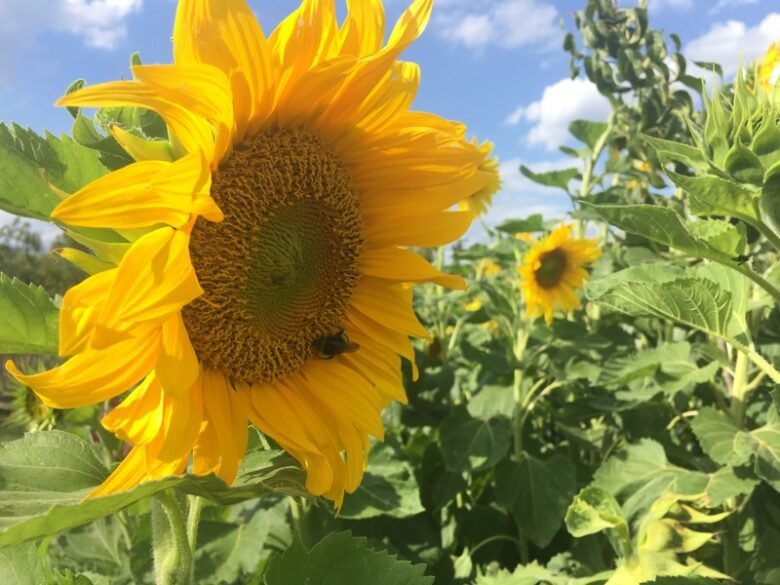The circle is open, but unbroken…
I’ve just returned from a two week intensive Earth Activist Training course on an ecovillage in Germany, and it was indeed intensive… The course incorporated a full 72 hour Permaculture Design Certificate but had an added focus on social permaculture, spirituality and activism in defence of this beautiful planet.

Where to start in describing how inspiring and nourishing these two weeks have been? There were 33 of us on the course, with an amazing variety of backgrounds and experience, from people who had worked on projects in places as diverse as Bolivia, Sudan, Germany and Morocco, to those just starting out, unsure of where their path might be. But every morning as we gathered in circle, to ground ourselves in earth energy, call in the elements, sing, dance and begin our day together, everyone was fully valued and truly equal.
The main focus of the course was permaculture, and we learned many tools that can be used to create a regenerative way of living with the earth; how to produce no waste, to recycle what might be considered useless elsewhere into a valuable input somewhere else in the system; how to work with water on the land, slowing its progress and reducing erosion; how to use small and slow solutions in a creative way; how to map and analyse a site before interacting.


I’ve read a little about permaculture in the past, but what I’ve always lacked from my own reading has been a solid framework to hang my facts upon. This course, delivered with gentle wisdom and ever-present humour by the teachers Starhawk and Alfred Decker, built that framework and gave me a solid grounding in the principles, and the burning desire to go and read every permaculture book I can find to add more facts!

Having the course located on an ecovillage meant we had the chance to experience firsthand such things as the practicalities of compost toilets (surprisingly low odour but rather high seats for someone as short as me!) and the recycling of greywater through a reed bed system (why do we waste so much water in conventional buildings?), and also to get some sense of how it is to live in an intentional community. The Sieben Linden residents very kindly asked all of us to join them for the Elm Dance in the village square the night of the full moon, in what was one of the most beautiful moments of our stay. The Elm Dance is a circle dance associated with The Work That Reconnects, danced in celebration of life and in solidarity with activists all over the world, and as we did the simple steps, hand in hand while live musicians played the haunting Latvian tune, the sense of connection was tangible. I felt honoured to be part of it.
We were also able to see some agroforestry and permaculture in practice in the gardens, with much of the food at our community meals being grown on site.




In addition to the more agricultural or earth-based permaculture, we also explored natural building methods (building with cob turns out to be easier than you might think, and satisfyingly sculpty) and had passionately inspiring talks about practical activism and non-violent direct action. The group also co-created and held a ritual halfway through our stay and we had the privilege of dancing the spiral dance under the shining full moon in a copse of oak trees, beaming at each other in glee and raising energy to channel towards our ailing Mother Earth.

Social permaculture came ever more to the fore for me as we started our final design project, I’ve always found working in groups to be challenging, despite being all in favour of groups and communities in theory, and talking happily about interdependence, but the focus on this course on group process and how to manage this successfully was really game changing. At university I always just wimped out and split the work up between participants, a ‘group’ project becoming in reality many individual projects put together at the end, but this time it was truly a group effort. It was really exciting how creative our group became, and we had some inspiring ideas of how to truly value diversity and build community as we worked on our brief of designing an urban welcome centre for refugees. It was great to realise how permaculture as a way of thinking can be applied to almost any situation. As we learned this week: “Permaculture is a revolution, disguised as organic gardening”.
There’s much more to be said about all that we learned and experienced, but this will serve as a taster for now. I’ve returned home filled with inspiration and impetus, and filled with gratitude to my wonderful teachers for a course that was as motivating and paradigm-shifting as I’d hoped it would be. Experiments in urban permaculture updates to follow!



